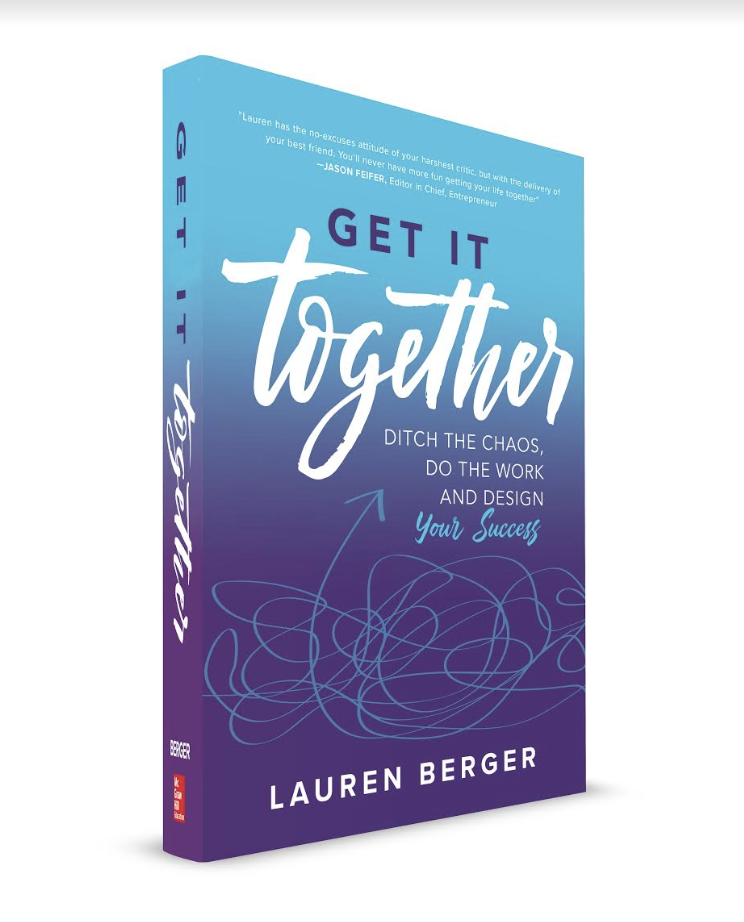1. Like Bieber Says, “Love Yourself”
Lately, I’m a big fan of Demi Lovato (and of course, Bieber too!). In fact, I’m such a sucker that I paid for YouTube’s Red service just to watch her documentary. Demi talks about self-love a lot in her documentary and throughout her work. After I watched the documentary, I came to realize how big a role self-love should be playing in our lives. Why was I fight- ing with myself constantly, and feeling like I wasn’t good enough? We hold ourselves to ridiculous standards, trying to live our life as if it’s being captured for our Instagram Story feeds. Real life happens, and we don’t have an edit button or a cool new filter to hide the reality. When you put too much pressure on yourself, apply a gentle reminder—love yourself. Remind yourself of how loved you are throughout this process, and you’ll be amazed at how much it can calm you down and center you during tough times.
2. Create Healthy Boundaries
A topic that comes up several times throughout the book is boundaries. Before I wrote this book, I didn’t incorporate many boundaries into my life. Honestly, I didn’t realize what a big problem this was for me. I would literally jump anytime a friend called, texted, asked to make plans, or wanted to travel to or with me. Every time I would just say yes. When I made these instant decisions, I wouldn’t consider myself or my desires, I’d just say yes. It didn’t matter if I had the time—I’d make time.
Ironically, trying so hard to please other people backfired. Because I was terrible at creating boundaries, I would overcommit and then have to backpedal to get out of the plans I’d made. And even when I wasn’t making other people upset, I’d be upsetting myself. I would commit to things, and then realize that I wanted nothing to do with those activities, then I’d question why I said yes in the first place. I didn’t feel in control of the way I was spending my time.
Since starting this project, I’ve slowly implemented healthy boundaries in my work and personal life. Just because someone wants to have a “feelings talk” in the office doesn’t mean I pick up the phone and call the person at that very moment. Just because someone else wants to do something on a specific day doesn’t mean that I can always make it work. , the other day I got an e-mail from a team member who asked if I could speak over the weekend. The old Lauren would have immediately written him back and said, “Sure! Call me whenever.” But, because I had previously set aside time to work on a project on Saturday, the new Lauren said, “I’m working on a project Saturday, but happy to set aside time to speak on Sunday.” For some, that may not seem like a big deal, but for me, this was huge. It not only helped me complete my work on time, but it also helped me to create a small but healthy boundary. Healthy boundaries are needed with friends and family, at work, and even with your social media.
3. Cope with Failure—It’s Inevitable
The truth is, we don’t always get it right. As I’ve tried to get it together throughout this process, I’ve experienced a lot of failure and rejection—and it sucks. I can’t begin to describe how many mornings I woke up frustrated with myself for not accomplishing a goal or went to sleep knowing that I could have done a better job that day. Since getting it together, though, I’ve recognized that each day is a step in the process and one that I will eventually learn from.
Failure is life’s most important lesson, and once we decide to flip our lives upside down and push ourselves to make a personal change, we will experience a lot of trial and error. You must also be ready to deal with those errors, otherwise you’ll fall victim to a ton of self-hate, and it’s not healthy for you or the people around you. If you’re feeling down on your- self, throughout this process, make sure to keep turning back to the failure and coping section in Chapter 3 of this book. It will help you tremendously. Remember, keep failing until you get it right!
4. Of All the People That You Count on, You Should Be Number One
Throughout the process of trying to get it together, I realized how I was constantly in my own way. At night, I’d make an ambitious plan to work out at 6:30 in the morning the next day. The next morning, I’d wake up grumpy and pound my phone alarm until it went silent. I’d go back to sleep think- ing, “Ugh, I need sleep. I’m not going to the gym.” Later, I’d wake up angry at myself for not following through on my own plan. It was a vicious cycle.
I kept feeling like one side of my brain would plan with the goal of bettering myself (Good Lauren) and then the other side of me would come along and ruin the plan (Bad Lauren). I needed to fix this issue and start making commitments I could stick to, avoid overpromising things to myself, and follow through on my own promises.
Another really helpful way to think about this is to shift your mindset. Think about this. When it comes to making plans with friends, I always keep my word, almost to a fault. Even if going to a specific restaurant or spending time a certain way is the last thing I want to do, I’ll likely do it for a friend.
Think about that.
I keep my word and follow through on commitments to friends (that I don’t even want to do), and yet I won’t do the same for myself! Doesn’t that sound ridiculous?
So, next time you try to break your own plans, think of yourself as a friend. Would you do this to a friend? The answer will likely be no.
5. You Advocate for You
While my last point was about keeping commitments, this point is about taking yourself seriously. After all, if you aren’t going to be your own advocate, who will?
I could go into work tomorrow and spend the entire day doing things for other people. I could answer their questions, chat about their feelings, answer 100-plus e-mails, take all kinds of phone calls, mentor team members, and offer advice to others all day. If that were the case, I’d leave the office having done a lot of stuff but having done nothing for myself. If you don’t start every day by reminding yourself of your own goals and actually planning the time for you to work on achieving those goals, you’ll never get from where you are to where you want to be. Life is full of requests, questions,
demands, phone calls, text messages, and more. If you don’t take control, stop the noise, and focus on yourself, who will?
6. Determine Your Goals
If you would have asked me about my goals before this book, I would have rattled off 100 different things—well, if I could even remember what they were. Today, I understand the importance of focusing on three main goals and being able to recite them anytime and anywhere. I was embarrassed the other day when my book agent asked if I had any New Year’s resolutions and I sort of mumbled an answer. The truth was that I did have goals, but I couldn’t remember what they were. If I don’t know my goals—who would? Know your goals, memorize them, and shout them from the rooftops.
In this book, goal-setting will come up a few different times. In Chapter 4, I have a whole exercise for you that helps you create your big goals for the year and come up with Action Plans on how to reach them. Make sure that these goals are clearly thought through each time so you have a better chance at achieving them!
7. Know Your Priorities
Everyone has their own priorities. Sometimes we think we have certain priorities, and then something happens and this shifts. I could say that my priority is work until I’m blue in the face, but the reality is—it’s not. For me, it’s my family: my husband, parents, siblings, extended family, and friends. I would do anything for them. Understanding your priorities and other people’s priorities (and accepting that usually they aren’t the same) will help you throughout your life (and throughout this book).
In addition to knowing your priorities, you must be able to actually prioritize—at work, at home, and even at the gym. Until recently, I thought I was good at prioritizing. Over time, I’ve learned this is actually a weakness for me. I’m one of those “everything’s important” types. In Chapter 6, I dig into your priorities and really encourage you to think about not only how you can identify your priorities but also how you can better tackle your priorities throughout work and life.
8. Know Your Needs
Throughout this process, I was challenged to continue learn- ing about myself. I was constantly asking myself questions: “What makes me happy/sad/mad/upset? How can I be the most productive at work? What can I do to self-motivate? How long do I need to sleep every night in order to feel ready for the next day? How many hours do I need after work before I feel ready for bed?”
By answering these questions and countless more, you will learn to pay close attention to your personal needs throughout this adventure. That knowledge will be power when getting it together.
9. Aim for Completion—No Half Tasks
I’m the queen of half-finishing projects and getting road- blocked. Here’s an example. In December one of our best sales team members, Katheryn, asked me for business cards. I was excited to use our big credit to Moo.com and get these for her. But every time I’d go to the website to try to finish the project, I’d get an error message upon checkout. I tried multiple times and had no luck. Instead of calling the company or figuring out how to handle the situation, I’d just stop. Months later, Katheryn still didn’t have business cards and was starting to get frustrated. And she was right! I kept getting roadblocked and didn’t make the time to sit down and get it done. Finally, as I wrote this manuscript, I realized that I need to stop half- completing tasks and get shit done! I blocked a half hour of time on my calendar, called the company, had them walk me through the website, and ordered the business cards. Now, I only wish I’d done that months before.
What I want to reiterate here is that half-completed tasks aren’t acceptable, and you have to hold yourself to that standard. I should have made myself complete that task months ago. Make the time to stop what you are doing, figure things out, and check things off your list.
10. Embrace Boredom
My college boyfriend once said, “Boredom is the enemy.” He said that we should never talk about being bored because there are so many great things to do in life. Because of this, I was convinced for years that boredom was a bad word. Looking back, I understand that he was trying to push the importance of appreciating life and how there are endless things to do so we should never be bored (or unappreciative). Today, I find me giving myself permission to be bored. The idea of not having a set to-do list and being able to wander is ideal to me—it sounds kind of perfect.
If we had some time to be bored in our lives, what would we do? What would we discover?
A researcher from the University of Louisville wrote that boredom helps to restore the perception of meaningful activities. He continues to say that “In the absence of boredom, one would remain trapped in unfulfilling situations. . . . Boredom [gives us] a ‘push’ that motivates us to switch goals and projects.”1 Therefore, being bored and embracing boredom can push us to find the right track for our lives. But to be bored, we must give ourselves a break. I used to fear “being bored,” but now I live to find it.
11. Always Self-Evaluate
When I prioritize and make decisions about how I will spend my time during the day, I’ll ask myself, “At the end of today— what must be done? What are my nonnegotiables? What will I be upset about come day’s end should I not accomplish it?” These are the activities that I always start with. The feeling of being accomplished at the end of the day and hitting your own goals is amazing. Remember to always be evaluating how things are going and your progress (good and bad). Some questions to ask yourself at the end of a long day include:
- What worked?
- What didn’t?
- What made you happy?
- What challenged you?
- What’s your number one goal for tomorrow?
12. Preparation Is Key
A constant theme for me this year has been the word prepa- ration. One of my closest friends, Samantha, is a hair stylist and makeup artist. Last year, she was doing a high-pressure photo shoot. The models and agents were very particular about their hair and indecisive about the type of look they were going for. If I were Samantha, I would have been super nervous about the entire thing. I remember asking her the night before the big shoot, “Are you nervous?” She looked at me and said, “No. I’m prepared.”
It turns out Sam had multiple conversations with both the models and the agents, triple-checked her product supply, and put enough time in the “getting ready” schedule so that if anything was wrong, she’d be able to fix it easily. Her response impressed me so much and made me realize she’s right! If you are prepared, you will be ready and confident for (almost) anything life will throw your way.
13. Celebrate the Good Stuff
When something exciting happens, celebrate it. Life is short—celebrate the good stuff because we all know that it’s not all good stuff. Part of being your best self is letting yourself (and others) acknowledge you when something great happens. When you get too wrapped up in getting it together, you can get into a focused work zone where you don’t want to do anything except be productive. Take a break and go cele- brate yourself—you deserve it!
14. Stop Getting Ready to Get Ready
At a certain point, you can only talk about doing something for so long. Eventually, you must take action. Stop getting ready to get ready and just go! Here’s an example: Let’s say I want to write a book. I spend five weeks planning out my book-writing process, making notes on calendars, schedules, and more. I talk to people about how I’m going to write a book. I tell loved ones I’m going to write this book. The conversations and plans continue, but the actual writing never starts. This is what it means when I say, “Stop getting ready to get ready.” At some point, I need to stop preparing and just write the book, or else it will never get done. In this book, I talk a lot about planning and a lot about preparation. But at some point, you have to shut up, put your head down, and just get the work done.
15. Choose Methods over Moods
Like anyone else, I can get cranky and frustrated. As I wrote this book, I realized the importance of needing to ignore my own moods at times. Before the book, I was quick to make decisions based on my mood. For example, I would think, “I’m tired, so therefore I will decide not to go to the gym.” Or “I’m hungry, so I’ll eat whatever is in front of me instead of planning a healthy meal.” Without fail, every time I chose my mood over my method, I would fall short of completing my goals and end up upset with myself. Today, I’ve realized this doesn’t have to be (and shouldn’t be) my default. Instead, I try to make decisions based on my methods, not my moods. My method is my strategy, and it’s the way I’ve determined I can accomplish a goal.
16. Use Your Time Wisely
Time is the most valuable thing we have. It’s the most precious thing you control. In the book, you’ll hear me talk frequently about the importance of time. I believe in taking control of the way we spend our time and, it very seriously. When we aren’t careful, our schedules control us, but with the right amount of thought, preparation, and planning, we can control our schedules. In addition to using your time wisely, be intentional about your time and the way you spend it. Being intentional was a constant theme and came up in almost every interview I conducted for this book. Everyone pushed the importance of setting your intentions for the day first thing and, again, being intentional with how we spend our time.
17. Stop Blaming Others
It’s easy to blame others for the problems we’ve brought on ourselves. We must stand up and take responsibility. If I tell someone I will do something in a certain amount of time, and then don’t do it, whose fault is that? Mine and mine alone. When you catch yourself playing the blame game (as we all do), take a deep breath and say to yourself, “This is my situation, and I’m going to do what I can to fix it.”

Excerpted from Get It Together: Ditch the Chaos, Do the Work and Design Your Success.


